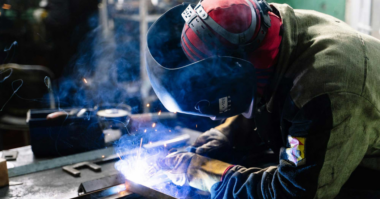As some of you may know, National Skilled Trades Day is coming up on May 1st. What some of you might not know is that it was only just established in 2019 by the company City Machine Technologies (CMT) in Youngstown, Ohio, to raise awareness about the skilled trades deficit in the United States. CMT was facing a labor shortage so instead of waiting for the culture to adapt, they decided to make an impact by raising awareness and promoting the skilled trades through promotional events such as National Skilled Trades Day.
In honor of all the amazing tradespeople out there, I wanted to showcase how people in the trades are essential for building and maintaining the physical infrastructure and systems that support modern society.
- Infrastructure Development and Maintenance: Skilled tradespeople are crucial for constructing and maintaining our infrastructure such as roads, bridges, buildings, and utilities. Without them, society’s infrastructure would deteriorate, impacting quality of life and economic development.
- Specialized Expertise: Tradespeople possess specialized skills and knowledge in their respective fields, such as plumbing, carpentry, welding, and HVACR. These skills are essential for ensuring that various systems and structures function safely and efficiently.
- Meeting Demands of Industry: Many industries rely on skilled trades for manufacturing, fabrication, installation, and repair tasks. Tradespeople are essential when it comes to the manufacturing industry to produce goods and maintain equipment.
- Versatility and Adaptability: Tradespeople often have versatile skills that allow them to adapt to changing job requirements and work in diverse environments. Their ability to troubleshoot problems and find practical solutions is invaluable in addressing complex challenges.
- Job Creation and Economic Growth: The trades sector provides employment opportunities for millions of people, contributing to economic growth and stability. By investing in skilled trades training and employment, communities can support job creation and local economies.
- Fulfilling Essential Needs: Tradespeople play a vital role in meeting essential needs, such as providing clean water through plumbing systems, ensuring safe electrical wiring in buildings, and maintaining HVAC systems for comfort and safety.
- Preserving Traditional Crafts: Many trades involve traditional craftsmanship and techniques that have been passed down through generations. Preserving these skills helps maintain cultural heritage and ensures that valuable knowledge is not lost over time.
Even though National Skilled Trades Day is only one day a year, we should be recognizing and supporting our trades community all year round. What they do to keep our society moving forward is indispensable.




